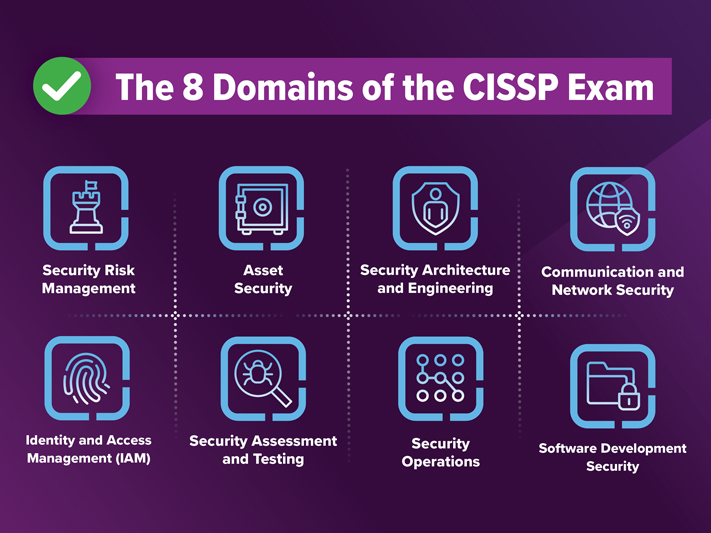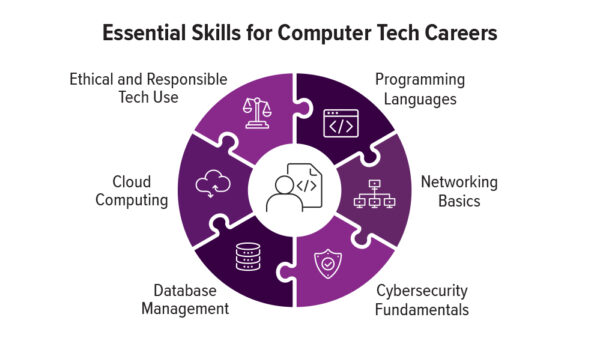Working as a consultant brings many rewarding and challenging opportunities. Whether you’re consulting with organizational clients to reshape business strategies and solve complex problems to improve business performance, or you’re working as an independent consultant providing diverse services through your vast knowledge and expertise, earning your Master of Business Administration through an executive MBA (EMBA) program can accelerate your consulting career!
The dynamic nature of the consulting industry is growing. The Bureau of Labor Statistics projects an 11% growth in employment through 2033 for those who perform duties as consultants, the result of firms and government agencies seeking to manage and steward resources. Standing above the crowd with an advanced credential like an MBA, especially one earned through an EMBA program, can elevate and position any consultant to springboard into high-paying positions within organizations or entrepreneurial ventures.
What Are the Key Skills Consultants Gain in an EMBA Program?
Consultants’ skills can vary depending upon their area of expertise. And success in consulting requires a variety of both specialized and general skill sets to remain competitive, allowing them to diagnose complex problems, recommend actionable solutions, and communicate strategies with insight and clarity. An executive MBA program provides and strengthens capabilities to deliver the value expected.
The following are just a few key competencies covered in an EMBA program:
Core Skills
Communication. Communicating clearly and the ability to convey complex ideas is critical for a successful consulting career. Consultants are required to communicate effectively whether presenting to the C-suite or through peer collaborations.
Problem-solving. Consultants are often positioned as the go-to professionals to identify challenges, analyze root causes, and design complex solutions. At the heart of consulting lies structured and critical thinking and a decision-making framework to approach problems creatively.
Interpersonal skills. Consultants often work in demanding client-, customer-, and team-facing environments. Strong interpersonal skills are essential for building relationships and trust, understanding needs, and navigating stakeholder collaborations.
Get Started at Excelsior University
Technical and Specialized Skills
Project management. Juggling multiple projects with tight deadlines often comes with competing priorities, as well as client-facing engagements. Project management skills ensure on-time completion to deliver consistent results within scope.
Leadership. Consultants are also leaders. Whether leading teams and guiding clients through change or system designs, demonstrating leadership that inspires and drives results is a critical tool in any consultant’s toolbox.
Industry and market analysis. Analytical tools and frameworks like SWOT, Porter’s five forces, and PESTEL empower consultants to assess trends and evaluate opportunities. Consultants with industry and market analysis skills can quickly understand and deliver deeper insights and competitive intelligence.
Financial modeling and budgeting. Consultants are often called upon to assess feasibility, ROI, and the financial implications of business decisions. Fluency in budgeting, forecasting, and financial modeling skills allows the consultant to identify and develop actionable and cost-effective strategies that will resonate with executive stakeholders across the organization.
Soft Skills
Benchmarking. Benchmarking skills, i.e., comparing client performance against best practice, recognized industry leaders, or best-in-class organizations, allow consultants to diagnose and identify performance gaps, support strategic decisions, and set realistic evidence-based goals.
Networking. Cultivating strong networks is essential for consultants—they become the strategic relationships that lead to knowledge sharing, career development, and client opportunities. Networking skills cross every stage of a consultant’s career, from forming lifelong peer connections to gaining referrals and being the first point of contact within the organization for insight and direction.
Persuasion. More than analyzing, consultants must influence through persuasion. Persuasion skills encompass methodologies to shape decisions, frame insights, build consensus, and lay the foundation for storytelling. Possessing the skills to navigate resistance while at the same time leading through transformation is critical to every consultant.
Emerging Skills
AI and big data. Understanding organizational data and how to make sense of it can provide consultants with a competitive advantage. Consultants with skills in artificial intelligence and big data are equipped to understand, now and in the future, what it takes for businesses and organizations to transform how they optimize, forecast, and reshape innovation and measurable results.
Technology acumen. Consultants are expected to be comfortable driving technical decisions in partnership with an organization’s IT professionals. Consultants with strong technology acumen can evaluate, advise, and expose pathways to innovative strategies and digital business models while understanding impact on business values.
Systems thinking. The ability to understand complex systems is a new norm, and consultants with systems thinking skills bring foresight into interdependencies across organizational departments. This skill allows for holistic design solutions—sustainable and scalable.
How Can an EMBA Program Help a Consultant Expand Their Client Base and Build Stronger Partnerships?
Whether independent or working within established organizations, expanding and building strong partnerships relies on visibility, trust, and strength. Completing an executive MBA program entails learning how to leverage powerful partnerships to elevate a personal brand and establishes a consultant as a respected professional through the following platforms:
Access to corporate networks. An EMBA program provides greater insight into building a stronger and compelling presence that will draw clients and open doors to collaborations with corporate organizations.
Thought leadership development. An MBA earned through an EMBA program projects long-term credibility for a consulting career within a specialized field. Consultants build their confidence and a respected voice across an industry.
Personal and business brand. Who you are is what clients see, and they are not hiring a service—they are hiring your expertise. An EMBA program helps consultants gain a better understanding of their professional selves and how to position themselves in a competitive market.
What Are the Benefits of an EMBA Program for Consultants Looking to Transition into Corporate Leadership Roles?
An EMBA program equips and sharpens confidence to take on greater operational roles and make the shift needed into corporate leadership. Whether the goal is to step into a C-suite position or move from an entrepreneurial to a corporate role, such a program paves the way for consultants through the following:
Expanded business acumen across industries. One benefit of an EMBA program is developing a well-rounded platform for taking on roles that call for executive leadership decisions, such as chief operating officer or vice president. Another benefit is acquiring broader business perspectives in finance, marketing, operations, and executive management.
Strategic career access. An MBA earned through an executive program demonstrates a level of readiness for senior or C-suite leadership, as well as a commitment to executive-level leadership where consultants once served, adding weight to their credentials.
Executive presence and leadership skills. The demand for leadership never gets old—there’s always a need for competent leaders in complex organizations, across all levels. Earning an MBA through an executive program enables consultants to demonstrate expertise in their field as well as the ability to tackle any organizational landscape.
Excelsior University’s EMBA Program
Whether you want to transition into a corporate executive role or grow your clientele, Excelsior University’s Executive MBA program is designed for consultants taking the lead to deliver value quickly and sustainably. As organizations become more accountable financially and require greater operational efficiency, you will be called upon to fill the gaps resulting from tighter budgets and less dependency on exorbitant contracts. Organizations will search for consultants who will provide quality through a lens of intelligent stewardship.
Built on a cohort model designed for professional relationships and a powerful network, Excelsior’s EMBA program equips consultants to lead smarter with in-demand skills. Graduates leave ready to operate at the intersection of purpose and precision.
Ready to step into a stewardship-minded world where return on investment and adaptability means more today than ever? Learn more about Excelsior’s EMBA program and apply today







